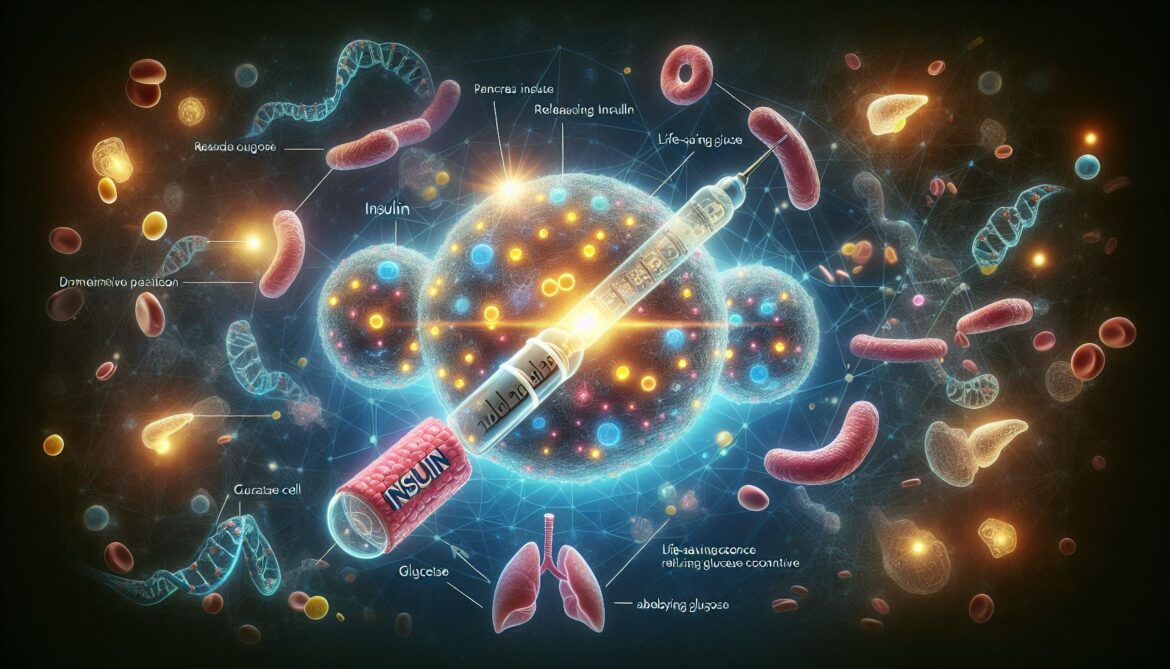Hello, you’re about to embark on a journey to understand the crucial relationship between insulin and diabetes in a much more vivid manner. The cases of diabetes globally is skyrocketing, with an estimated 422 million people suffering from it as of 2014, according to the World Health Organization (WHO). And these numbers underscore the importance of understanding the role that insulin plays to manage this life-threatening disorder. So, buckle up and prepare to dive deep into the insulin-diabetes connection. Remember, knowledge is power!
The Essentials: What is Diabetes and Insulin?
Before you delve into the nitty-gritty, it’s vital that you genuinely understand what diabetes and insulin are, and the functions they perform in the body.
Diabetes is a chronic condition that causes high blood sugar levels. It differentiates into two primary types, Type 1 and Type 2 diabetes, where the impact and relationship with insulin varies significantly.
On the other hand, Insulin is a hormone produced by the pancreas, primarily responsible for regulating blood sugar levels. In simple terms, it enables cells throughout your body to take in glucose and use it for energy.
Understanding Type 1 Diabetes and its Relationship With Insulin
Type 1 diabetes, also known as insulin-dependent diabetes, is usually diagnosed in children and young adults. People with type 1 diabetes produce little to no insulin, as the body’s immune system mistakenly perceives the insulin-producing cells in the pancreas as foreign and destroys them.
This absence of insulin leads to an accumulation of glucose in the bloodstream instead of it being used as energy. In type 1 diabetes, insulin is an essential medication required to manage the condition effectively.
Unraveling Type 2 Diabetes and its Association with Insulin
Type 2 diabetes accounts for about 90-95% of all diagnosed cases of diabetes. In type 2 diabetes, your body does not effectively use insulin, a situation known as insulin resistance. Initially, your pancreas makes extra insulin to compensate for it. However, ultimately it cannot make enough to keep blood glucose levels normal.
Though insulin is not always necessary as a treatment in the early stages, it often becomes essential over time when other solutions become ineffective.
Insulin: The Saviour Against Diabetes
Put simply, the treatment of diabetes revolves around restoring or mimicking the functions of insulin, either through insulin injections or medicines that stimulate our cells to accept more glucose. For those with Type 1 diabetes, taking insulin is part of the daily routine. For Type 2 diabetes patients, many start on other medications but move onto insulin eventually.
The types of insulin prescribed can vary significantly, due to factors such as the time they take to work, peak time, and how long they last. And, the chosen type of insulin can have a substantial impact on the lifestyle, diet, and glucose monitoring habits of a diabetic patient.
The Importance of Proper Insulin Management in Diabetes
While insulin indeed offers an effective solution against diabetes, it’s essential to conduct regular blood glucose checks and adjust the insulin doses to prevent hypoglycemia (low blood glucose) or hyperglycemia (high blood glucose) from occurring.
Regular exercise remains another critical element as physical activity lets the cells absorb glucose at greater rates, thereby reducing the glucose content in the blood.
The Future of Insulin Therapy
Healthcare professionals and researchers continuously are working on enhancing insulin therapy’s effectiveness and convenience. One of the significant advancements being ‘Inhaled Insulin,’ which offers a non-invasive alternative for subcutaneous injections, promising a better quality of life.
Moving Forward
To sum up, insulin plays a vital role in the management of diabetes, serving as a lifeline to patients across the globe. The more you understand about the intricate connection between insulin and diabetes, the better you’ll be equipped to manage it well. By remaining informed and proactive, you can keep riding the waves of the challenges diabetes might throw at you, instead of being engulfed by them. Here’s to your health!




